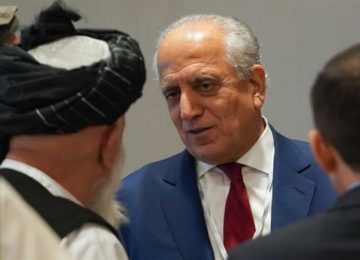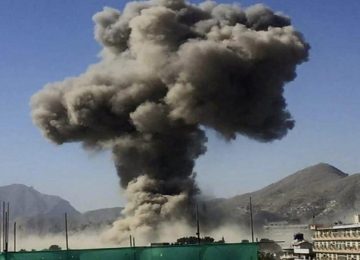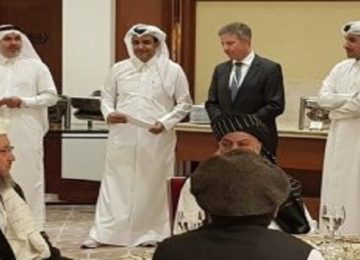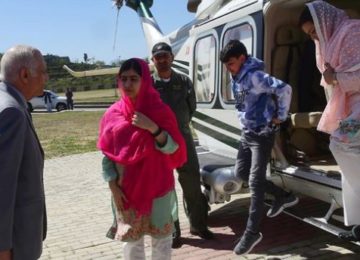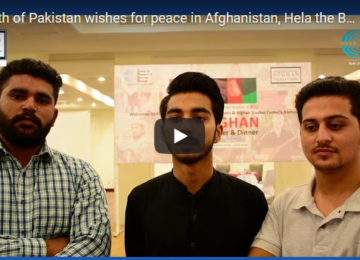On 20 November, the Prosecutor of the International Criminal Court (ICC) finally published her request to open a formal investigation into war crimes and crimes against humanity committed in Afghanistan. This means that the Prosecutor agrees with the result of the preliminary examination showing that crimes meeting the ICC gravity threshold have been committed in Afghanistan since 2003 (the period for which the ICC has jurisdiction) and that the ICC considers that Afghanistan is either unwilling or unable to prosecute these crimes nationally. The Prosecutor also made an open request to the victims to send their statements to the Court by 31 January 2018. There is, then, a very important but short window of opportunity for victims to share their stories with the Court. On the occasion of the release of the Prosecutor’s request, AAN is publishing this question and answers dispatch focusing on the ICC and Afghanistan.
THE ICC’s INVESTIGATION IN AFGHANISTAN
What was the result of the ICC Preliminary Examination into the Situation in Afghanistan?
The preliminary examination into crimes committed in Afghanistan lasted almost a decade. The ICC’s Office of the Prosecutor (OTP) released its 2016 Preliminary Examination Report on Afghanistan (released annually) on 14 November 2016. The report stated that the OTP had determined that there was a reasonable basis to believe that, at a minimum, the following crimes within the Court’s jurisdiction had occurred:
- Crimes against humanity and war crimes by the Taleban and their affiliate, the Haqqani Network
- War crimes of torture and related ill-treatment by Afghan government forces, in particular the intelligence agency (National Directorate for Security) and the Afghan National Police;
- War crimes of torture and related ill-treatment, by US military forces deployed to Afghanistan and in secret detention facilities operated by the Central Intelligence Agency, principally in the 2003-2004 period, although allegedly continuing in some cases until 2014.
The Preliminary Examination also said that thresholds of admissibility had been reached, ie the alleged crimes under ICC jurisdiction are sufficiently grave, are not being addressed by domestic or other legal bodies (although this is “subject to further information that could be provided by the relevant national authorities in the course of the preliminary examination or any subsequent investigation”) and there are “no substantial reasons to believe that the opening of an investigation would not be in the interests of justice.”
The Preliminary Examination was initiated by the ICC Prosecutor and not requested by Afghanistan or the United Nations Security Council, which means under the Court’s rules that, once the Prosecutor has determined that there is a case or cases to answer, there has to be an additional, preliminary judgement by a panel of judges from the Pre-Trial Chamber. The judges will review the Prosecutor’s request, as well as all the supporting evidence, to ensure that an investigation is merited.
What has the ICC’s Office of the Prosecutor done about the situation in Afghanistan based on the Preliminary Examination?
On 30 October 2017 the ICC Prosecutor notified the Presidency of the ICC of her readiness to submit her request to the Pre-Trial Chamber of the ICC seeking judicial authorisation to commence an investigation into the situation in Afghanistan. On 3 November 2017, the Prosecutor announced that she was submitting her request to the Pre-Trial Chamber. On the same day the Presidency established the Pre-Trial Chamber III to deal with the Prosecutor’s request concerning the situation in Afghanistan.
On 20 November, the Prosecutor announced that she had submitted her request, seeking authorisation to commence a full investigation into the situation in Afghanistan, to the Pre-Trial Chamber III of the Court. According to this lengthy, 181-page request, all legal criteria for commencement of an investigation exist (AAN’s analysis about these legal criteria and the OTP’s arguments concerning them: see here).
On the same day, 20 November, the Prosecutor also released a notification on the ICC website where she said:
By this notice, the Prosecutor of the International Criminal Court, Fatou Bensouda, informs victims of alleged crimes committed on the territory of Afghanistan in the period of alleged crimes committed on the territory of Afghanistan in the period since 1 May 2003, as well as victims of other alleged crimes that have a nexus to the armed conflict in Afghanistan and were committed on the territory of other States Parties in the period since 1 July 2002, […].
The Prosecutor’s notice to victims follows an order issued by the three judges of the Pre-Trial Chamber on 9 November 2017 concerning the issue of victims’ representations. According to this order, war victims “may” submit their representations to the Registry of the ICC until 31 of January 2018. For this purpose, the Registry of the ICC developed special forms in local languages, namely Dari and Pashto, as well as English – although victims can use any format and languages they are comfortable with. The victims can also send their messages to the ICC as audio and video files. The Prosecutor was obliged in the order to notify the victims known to her via public notice by general means. Victims’ engagement with the ICC is voluntary and they are not obliged to prove their claims. The victims can submit their representation individually or collectively.
What happens now? What will an investigation in Afghanistan entail?
The prosecutor has now asked the judges (the “pre-trial chamber”) for authorization to open an investigation. The judges will consider the material gathered by the prosecutor, but will also invite victims to tell the judges what happened to them and whether they want the ICC to investigate. This is an important but very short window for victims to be heard; it lasts from now until January 31, 2018 (See 16 below).
A decision from the judges or the pre-trial chamber can be expected within three to six months. If permission to investigate is granted, the real investigation begins thereafter. When the real investigation starts, the Prosecutor and her team have much more power to gather information.
Who are likely to be investigated by the ICC in Afghanistan?
Three main groups have been identified by the Prosecutor:
– the Taleban and affiliated armed groups
– Afghan government forces
– the United States military and Central Intelligence Agency
According to information received by the OTP thus far, over 17,000 civilian deaths between January 2007 and December 2015 could be attributed to anti-government armed groups such as the Taleban. The report also highlights attacks by the Taleban against schools, hospitals, mosques and humanitarian organisations (which are “protected objects” under international law). In the case of criminal conduct by US forces and Afghan government forces, grave abuses against conflict-related detainees appear to be the main focus.
Can the ICC investigate crimes committed by US forces if the US is not a party to the Rome Statute?
Although the United States is not itself a member of the ICC, because alleged crimes took place by US nationals on the territory of Afghanistan, the Court is legally able to assert jurisdiction over them from May 1, 2003 onwards. Furthermore, the Court has jurisdiction over all international crimes in other countries that are members of the Court where so-called US “black sites” operated, regardless of the nationality of the perpetrators (this includes Afghanistan, but also countries like Poland, Romania, Lithuania where detainees were taken for interrogation).
What role can victims play in the Court’s work?
There are three main areas of involvement:
(1) Victim Representations: when the judges/chambers are deciding whether to accept the Prosecutors’ request to investigate (see 14), they may ask for the opinions of victims.
(2) Victim Participation: Once charges are filed against specific individuals (see 15), victims can apply to be recognised by the Court and will then be represented by a lawyer who can participate on their behalf at relevant stages of the proceedings. The Court will also try to keep victims informed about the status of proceedings.
(3) Reparations: If an accused is convicted, victims can receive reparations. It has already ordered reparations for victims in the Democratic Republic of Congo and Mali, but this requires that an individual first be convicted for his or her crimes. The ICC’s Trust Fund for Victims (TFV) implements Court-ordered reparations; it also has the authority to provide physical, psychological, and material support to victims and their families in situations where the Court is investigating.
What role can civil society play in the Court’s work?
During investigations, the Prosecutor sometimes asks local civil society organisations that have information about the alleged crimes to help lead them to sources of evidence such as witnesses. Sometimes they seek to make formal arrangements with people they call ‘intermediaries’. Civil society should talk to lawyers or groups who work on these kinds of investigations to fully understand the consequences of giving such information later on if it is used in a trial. For example, any information given to the Prosecutor might have to be revealed to the defence in the case.
Is information provided by victims to the ICC confidential?
Information provided to judges by victims about whether they want an investigation to open is not made public. Information provided to the Prosecutor when the investigation starts is not made public, although defence lawyers can ask for such information. The Court has significant discretion regarding how much information it needs to share with anyone at this stage. Victims should talk to lawyers or groups who work on these kinds of investigations to fully understand their rights and potential risks before talking to the Court.
Can other countries stop the Court if they don’t want this investigation?
The only way that countries can legally stop an investigation is to ask the UN Security Council to defer an investigation, for a renewable period of 12 months. This is not easy: it requires a majority of the Security Council’s vote (9+ out of 15), and no vetoes from any of the permanent member states (US, UK, Russia, China, France). It is noteworthy that the US has not joined the Court but if warrants are issued for American citizens, then they can be arrested if they travel to countries that are ICC members.
Because of the principle of complementarity (see The ICC in General, 9, above), states that are themselves in a position to prosecute these crimes will have the opportunity at different stages to argue that the ICC should stop its actions because they are already investigating the same crimes themselves.
What has been the effect of ICC investigations in other countries?
It’s important to see the ICC as having two roles: one being the investigations and trials themselves, the other being the impact the Court can have on domestic prosecutions. A good outcome is accelerating and expanding domestic accountability by, for instance, passing domestic legislation that criminalises international crimes, prosecuting accused individuals before national courts, upgrading domestic court systems to vigorously prosecute such crimes, and passing domestic legislation that improves the means by which to do so (such as improving witness protection programs). So far, ICC examinations and investigations in other countries have led to some prosecutions by local or national courts, as in Uganda, Colombia, and the Democratic Republic of Congo. Moreover, although some commentators express concern that the ICC’s involvement can complicate conflict situations, others have argued that the Court has actually helped support peace negotiations in countries emerging from conflict, like Uganda and Colombia, by ensuring that accountability is part of the countries’ post-conflict agreement.
THE ICC IN GENERAL
What is the International Criminal Court?
The ICC is an independent, permanent court established in 2002 to investigate and prosecute the following international crimes: genocide, war crimes, and crimes against humanity.
What are war crimes and crimes against humanity?
War crimes are certain acts that violate international rules on how armed conflict must be conducted. Crimes against humanity are serious human rights abuses committed against civilians on a widespread and systematic scale. They are sometimes called atrocity crimes, and, unlike war crimes, they can be committed at any time, not just during armed conflict. Some examples of these crimes are torture and cruel treatment (such as abuse in detention), intentional killing of civilians, and attacks on places such as schools, hospitals and mosques. Making these actions crimes means that individuals who ordered or perpetrated them can be held criminally accountable. They are called international crimes because they are thought to be so shocking that dealing with them should be the business of the whole world and not the state where the crimes were committed.
How was the ICC established?
The Court was created by an international treaty known as the Rome Statute. It came into existence on July 1, 2002, after 60 states—the minimum number required—ratified the Statute. States that have ratified the Rome Statute (at present, 123 states have done so) are legally obligated to cooperate with the Court.
When did Afghanistan join the ICC?
The government of Afghanistan ratified the Rome Statute in 2003, so the ICC can investigate Rome Statute crimes committed by Afghans or on Afghanistan’s territory from May 1, 2003 onwards. The Rome Statute was adopted in the UN Diplomatic Conference of Plenipotentiaries on the Establishment of an International Criminal Court in 1998, also with Afghan involvement. The Afghan Mujaheddin Government, officially the Islamic State of Afghanistan, sent a delegation, which was led by current Chief Executive Abdullah Abdullah, to thecConference. That time Abdullah Abdullah was the Deputy of Foreign Affairs Ministry.
Who can the ICC investigate?
The Court can investigate individuals, not states or corporations. The Rome Statute does not recognise immunity for any person, even heads of state or government officials. In other countries where the ICC has intervened there have been arrest warrants issued against presidents and high level officials such as heads of intelligence agencies, as well as the leaders of armed groups.
Where can the ICC investigate?
The Court has jurisdiction over crimes committed on the territory of a country that has signed the Rome Statute, or crimes by citizens of countries that have ratified the Rome Statute. (This means that even though the United States has not ratified the Rome Statute its citizens can be investigated for crimes committed in Afghanistan since 2003). The Court can also investigate in countries that have not ratified the Rome Statute, but this requires a UN Security Council referral.
Where else has the ICC investigated?
To date, the ICC has opened ten investigations in nine countries: Uganda, the Democratic Republic of Congo; the Central African Republic (where two separate investigations are underway); Darfur, Sudan; Kenya; Côte d’Ivoire; Libya; Mali; and Georgia.
What triggers an investigation by the Court?
There are three ways that the ICC gets involved. First, a country that has ratified the Rome Statute can refer a situation for investigation; secondly, the UN Security Council can refer a situation (as it has done in Libya and Sudan); thirdly, the Prosecutor can seek to initiate an investigation in countries that have ratified the Rome Statute. This is what has happened in Afghanistan.
What is the ICC’s relationship to national courts?
The ICC operates according to the principle of complementarity, which recognises that states have the main responsibility to investigate and prosecute crimes committed in their territories or by their nationals. This means that the Court can only investigate when a state is not already investigating or prosecuting the same individual in a similar case, or is unable or unwilling to do so.
How does the ICC enforce its decisions?
The Court does not have its own police force; it relies on state cooperation to enforce arrest warrants and comply with rulings. Other countries that are members of the Court also have a duty to cooperate – including enforcing arrest warrants.
How long has the ICC been involved in Afghanistan?
The Office of the Prosecutor (OTP) of the ICC started a preliminary examination in Afghanistan at least as long ago as 2006, when it was made public. A preliminary examination comes before a formal investigation and allows the prosecutor to decide if the suspected crimes fit its mandate. The examination also includes assessing whether the national government is doing enough to investigate and prosecute domestically.
The first version of this Questions and Answers document was prepared by the Open Society Justice Initiative for a seminar series. OSJI kindly offered the document to AAN for publication and AAN’s Ehsan Qaane has completed it with information about the Prosecutor’s request. For in-depth information about the ICC in Afghanistan, see AAN’s previous publications here, here and here.
By Special Arrangement with AAN. Original link.
Disclaimer: Views expressed on this blog are not necessarily endorsed or supported by the Center for Research and Security Studies, Islamabad.




